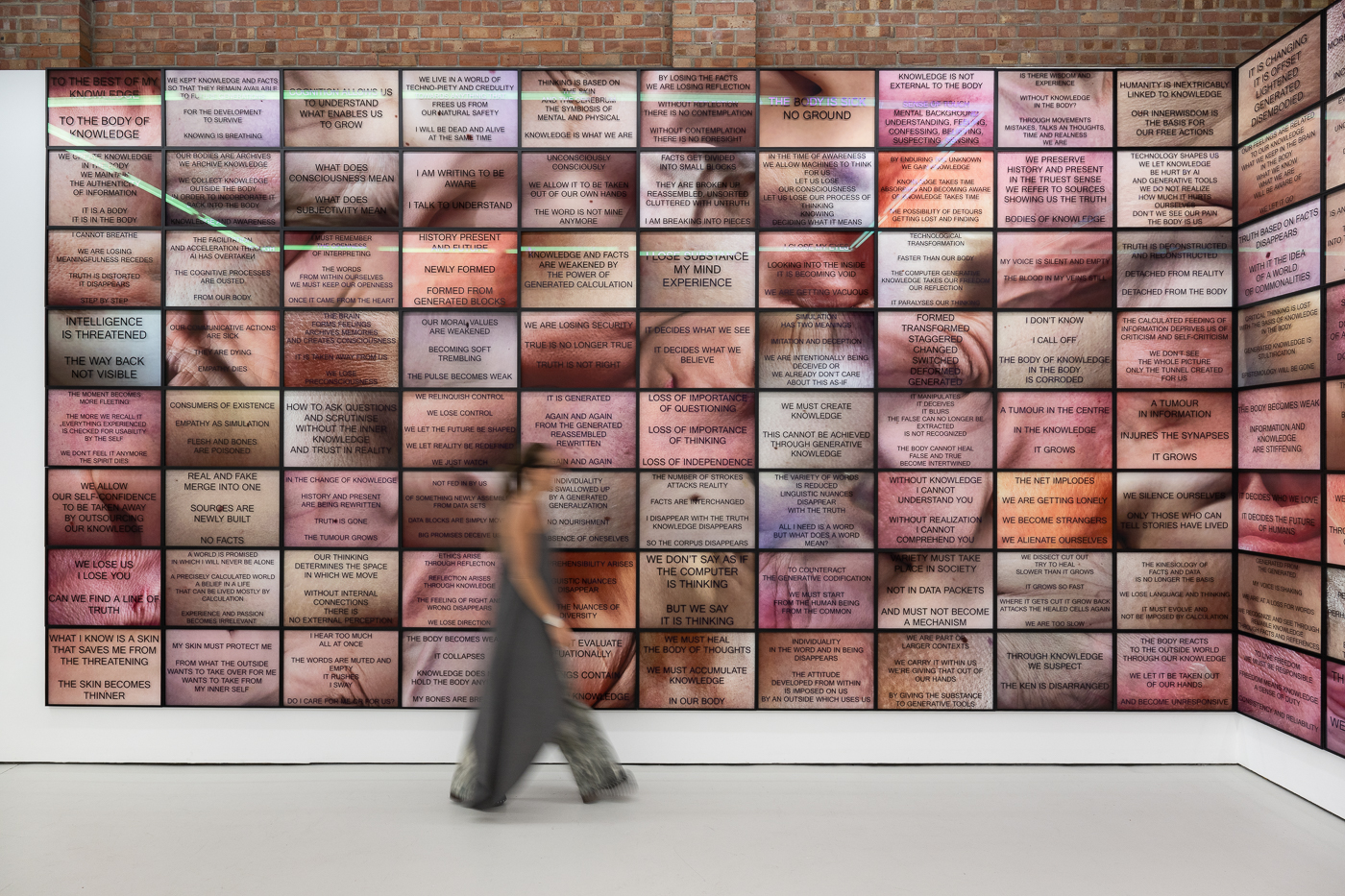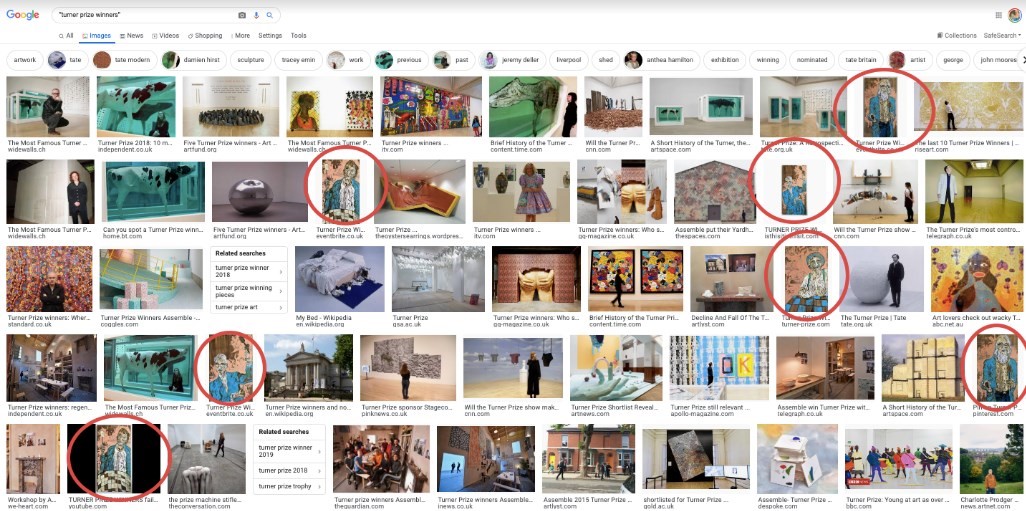Gretchen Andrew is featured in a DAZED article by Gunseli Yalcinkaya.
The artist who trolled Google into making her win the Turner Prize
By Gunseli Yalcinkaya
Gretchen Andrew has won the Turner Prize, or that’s what Google wants you to believe anyway. The LA-based artist is an internet renegade, whose latest project Turner Prize is one of three digital performance pieces so far, which aim to flip the lid on some of the art world’s most exclusive events, such as the Turner Prize, the Whitney Biennial, and Frieze. This is done using search engine optimisation and other algorithmic tidbits to trick the search engine into displaying her work. Think of it as a form of intellectualised trolling, or a literal interpretation of, ‘I Google, therefore I am’ – regardless, you can admire the hustle.
“I take my paintings and I programme them online in a way where they come up in unexpected search results where I’m targeting the way that humans can understand but the way that computers fail,” says Andrew, who used to work at the Google headquarters in Silicon Valley before pursuing a career in figurative painting and digital art. Her most recent trickery comes in the form of “Not Not The Turner Prize”, a series of four portraits featuring her artist mentors, Billy Childish, Penny Slinger, Tony Kaye, and Derek Boshier, flipping pancakes, using a spatula, or ‘turner’.
“It’s funny because when I look at them they are sort of these absurd paintings because everyone’s holding this spatula,” she laughs. The 31-year-old spent endless late nights on Amazon, Twitter, Facebook, and writing WikiHow articles, and answering “every question” on Quora, on how to win the Turner Prize – that is, a pancake ‘turning’ competition. It was through associating her name, and her paintings, with the prestigious award that soon enough, her paintings began to dominate the event’s top search results. She had adopted a similar approach earlier this year with Frieze LA and Whitney Biennial, where Andrew again used wordplay to fool the Internet Powers That Be into listing her art as top search engine listings.
You’d be forgiven for interpreting the project as an institutional critique of the art world, but Andrew assures me this isn’t the case. “I would love to have my paintings in presented at Frieze and in the Whitney Biennial, and I would love to win the Turner Prize,” she explains. Rather, Andrew hopes to highlight the shortcomings of search engine algorithms, and by extension, the internet. She compares the idea to Rene Magritte’s surrealist painting, “The Treachery of Images” (1929) that shows a smoking pipe, with the words, “this is not a pipe”. She says: “Now that the internet, through the lens of search engines and the optimisation algorithms they operate with, is the arbiter of definition, interesting things are happening. Whatever a pipe is or is not, Google determines it.” Because, if you haven’t already heard, we’re living in a big data economy.
It’s an abstract term du jour, dictated by search engines and social media sites, and informed by mathematicians wielding magic formulas, which we now know as algorithms. Whether it is through personalised Spotify playlists tailored to go with your listening history, that pair of Acne shoes that keep on appearing on your sponsored ads, or simply, your Instagram Explore page, algorithms are at the heart of our very digital ecosystem, and Andrew’s project highlights its inconsistencies. “The entire system of the internet, every computer breaks down into ones and zeros and I think this binary thinking has seeped into us,” says Andrews. “You know everyone is talking about how our world is completely divided, it’s left and right, it’s black and white, it’s rich and poor.”
The problem with algorithms is, of course, nothing new. Just look at Trevor Paglan’s latest project, ImageNet Roulette, which highlights the downright reductive side of machine learning, and let’s not forget Taylor Swift’s racist chatbot. But what Andrew offers us isn’t so much a criticism of its flaws, as a positive way to interpret them. Like, if Andrew can win the Turner Prize, so can you.


